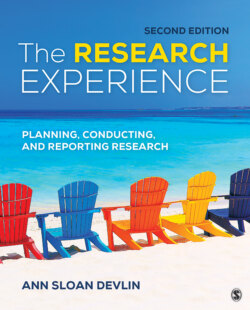Читать книгу The Research Experience - Ann Sloan Devlin - Страница 139
На сайте Литреса книга снята с продажи.
Selection–Maturation Interaction
ОглавлениеIn quasi-experimental research designs where you have not randomly assigned participants to conditions (which is often the case in real-world situations, such as classrooms or company divisions, where you have “naturally assembled collectives”; Campbell & Stanley, 1963, p. 47), some preexisting characteristic of the group may influence the outcome of the experimental manipulation, not the power of the manipulation itself, because one group might mature or change at a faster rate than another. This is called a selection–maturation interaction. The researcher makes every attempt to use equivalent groups, but without the pretesting to guarantee sampling equivalence in the real world, Campbell and Stanley noted, this situation presents a threat to internal validity.
